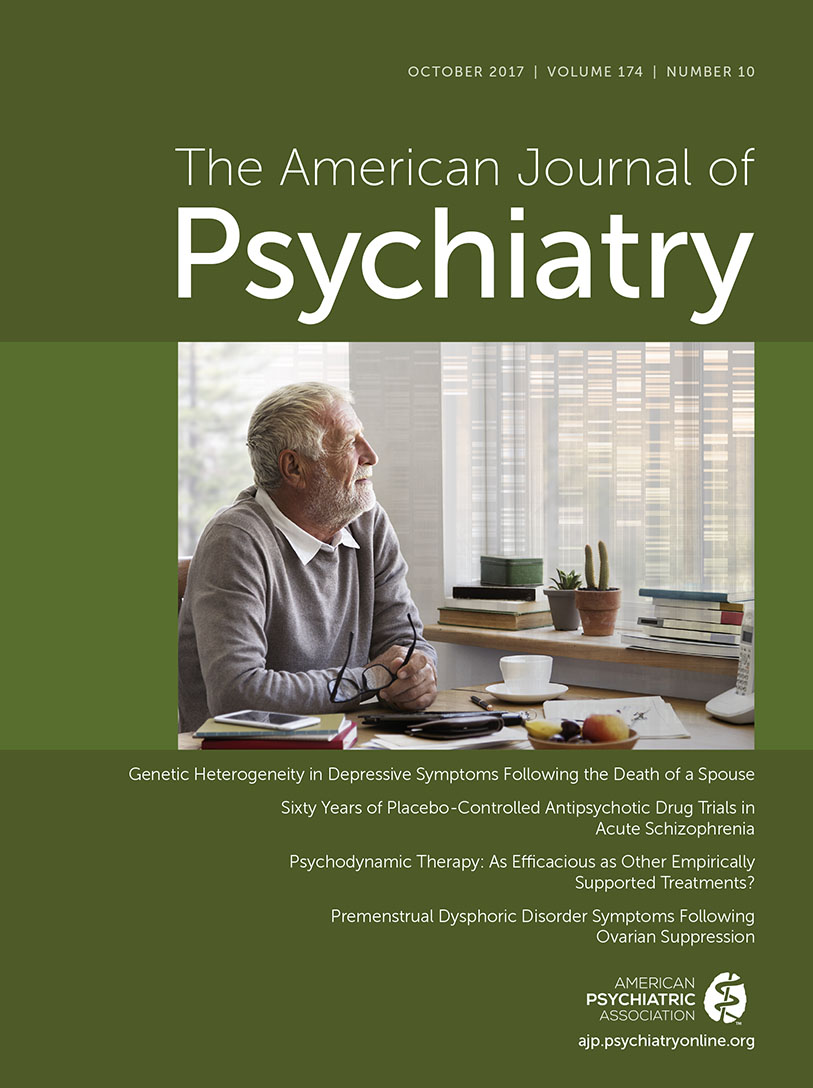Recurrent Benzodiazepine Withdrawal Catatonia in an Older Adult
To the Editor: The prevalence of long-term benzodiazepine use is elevated in individuals ages 65 years and older (1). Recent guidelines recommend against long-term benzodiazepine use, and many clinicians are reducing prescribed doses or discontinuing benzodiazepines in those ages 65 and older (1). A rare complication of benzodiazepine withdrawal is catatonia. Here we describe a case of recurrent benzodiazepine withdrawal catatonia in an older adult.
A 79-year-old woman presented to the emergency department with 2 days of altered mental status characterized by staring, mutism, and motor resistance to commands. Six days prior to presentation, clonazepam was discontinued (daily dose of 0.5 mg prescribed for 10 years). Her history included mild cognitive impairment, unspecified anxiety, and past major depression without catatonia. Purposeless agitation, including stereotypies and combativeness, occurred when staff obtained intravenous access. After receiving 2 mg of lorazepam intravenously, the patient began speaking and became more cooperative. She received another 1 mg of lorazepam intravenously to facilitate incremental improvement in mental status. Metabolic laboratory and head imaging test results were unremarkable. Her vital signs were unchanged from baseline, and tremor was absent. Catatonia signs and symptoms remained absent 12 hours later during psychiatric evaluation. There was no recent history or examination findings of depression, mania, psychosis, or delirium. The most likely explanation for catatonia was benzodiazepine discontinuation. Chart review revealed the patient developed catatonia, with similar symptoms to the current episode, 5 years prior due to clonazepam discontinuation. Given the patient’s history of recurrent catatonia after benzodiazepine discontinuation, the patient was advised to continue 0.5 mg of clonazepam daily.
Benzodiazepine withdrawal catatonia typically occurs after long-term benzodiazepine use, with onset of symptoms 3–7 days after discontinuation (2). Older adults may be more susceptible to benzodiazepine withdrawal catatonia than the general population (3). A recent review identified 16 cases of catatonia due to benzodiazepine withdrawal, eight of which involved older adults. All patients were initially treated with benzodiazepines. Long-term management strategies varied and included continuation of benzodiazepine (six cases), taper of benzodiazepine over 2 weeks (one case), and administration of ECT (one case) (2). To date, this is the first case describing recurrent benzodiazepine withdrawal catatonia.
Benzodiazepine withdrawal catatonia may become more common as the prevalence of older adults on long-term benzodiazepines increases and clinicians begin tapering benzodiazepine doses. Initial treatment with benzodiazepines often leads to immediate improvement in benzodiazepine withdrawal catatonia. However, uncertainty remains about optimal long-term management. Potential treatment options include prolonged benzodiazepine taper or long-term maintenance at the lowest effective dose. Alternative treatments for older adults with catatonia include memantine, topirimate, amantadine, or ECT in severe cases (4). However, these treatments have not yet been evaluated in the management of benzodiazepine withdrawal catatonia.
1 : Benzodiazepine use in the United States. JAMA Psychiatry 2015; 72:136–142Crossref, Medline, Google Scholar
2 : Alcohol and sedative-hypnotic withdrawal catatonia: two case reports, systematic literature review, and suggestion of a potential relationship with alcohol withdrawal delirium. Psychosomatics 2016; 57:246–255Crossref, Medline, Google Scholar
3 : Catatonia after benzodiazepine withdrawal. J Clin Psychopharmacol 1996; 16:315–319Crossref, Medline, Google Scholar
4 : Current electroconvulsive therapy practice and research in the geriatric population. Neuropsychiatry (London) 2014; 4:33–54Crossref, Medline, Google Scholar



